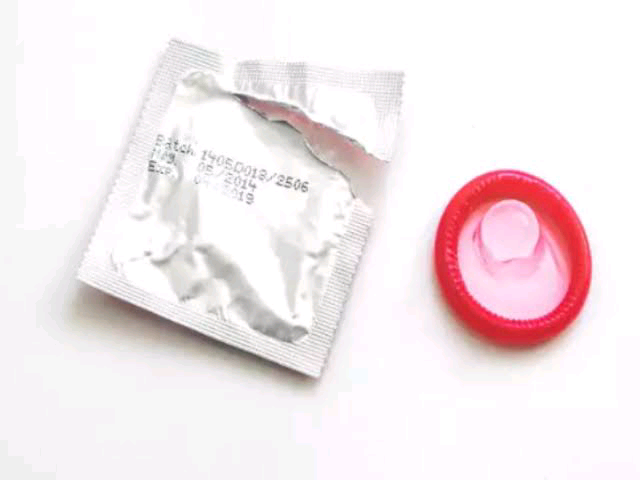While condoms do provide protection against most sexually transmitted infections (STIs), some infections can be passed through skin-on-skin contact alone. It is important to get clued up on which STIs you may be at risk of.
The primary function of a condom is to prevent the transmission of bodily fluids such as semen, vaginal secretions, and blood. In turn, this can help to avoid pregnancy and sexually transmitted infections (STIs) during sexual intercourse.
Transmission of most STIs, such as Chlamydia and Gonorrhoea, can be prevented with a condom. When used correctly, condoms are around 98 percent effective, meaning that 2 out of 100 people will become pregnant in a year.
However, even if a condom is worn during sexual contact or intercourse, some infections can be passed by skin-to-skin contact. So, let’s discuss three STIs you can catch, even if you use a condom.
1. Syphilis
Syphilis is a bacterial infection that can be spread through oral, vaginal or anal sex. One of the first symptoms of Syphilis is a sore, also known as a ‘chancre’, which forms at the site of infection and can be transmitted to a partner through skin-to-skin contact.
Wearing a condom reduces the likelihood of contracting Syphilis and can be beneficial if the chancre is covered by the condom. However, the infection can be passed if a chancre is not covered by the condom.
2. Herpes
The Herpes Simplex Virus (HSV) can be transmitted through oral, vaginal or anal contact with an infected person. The virus can cause sores to appear around the mouth, genitals or anus. HSV-1, or oral Herpes, causes cold sores or fever blisters commonly around the mouth and lips. HSV-2, or genital Herpes, causes sores to form usually around the genitals or anus. During an active outbreak (when you are most infectious), it is recommended to refrain from sexual activity in order to lower the risk of transmitting Herpes to your partner.
3. Genital Warts
Genital Warts are caused by the Human Papillomavirus (HPV) – a family of viruses of which there are more than 140 different types. While Genital Warts are caused by low-risk types of the virus, high-risk types are associated with several different cancers. HPV can be transferred through skin-to-skin contact with areas of the genitals which are not covered by a condom.
4. Molluscum
Molluscum is a virus that manifests as tiny little bumps on the skin. It’s not a very familiar STI, because it doesn’t cause any long-term health problems and is typically asymptomatic other than the appearance of bumps. “It’s a skin condition commonly transmitted between kids, but in adults you usually see it sexually transmitted,” Rowen says. Women will typically notice it on the vulva. The small, round bumps can appear anywhere from two to three months after the time of infection, and may itch or feel tender to the touch.
READ ALSO: 3 side-effects of condoms you never knew
Bottom line: If you’re sexually active, it’s important to get tested regularly even if you practice safe sex.
If you have multiple partners—or if your partner might have multiple partners—it’s absolutely crucial that you get tested regularly. This is particularly important given the fact that “many men and women are asymptomatic when they have a sexually transmitted infection,” Sasan says. She recommends getting tested every three to six months—or, before “initiating sexual contact with a new partner.” (You should also ask any new partners when they were last tested, to make sure they’ve got a clean bill of sexual health, too.)
Getting tested regularly isn’t just about avoiding passing STIs back and forth, but it’s also important to prevent an infection from having a greater impact on your health. Some STIs, if left untreated for too long, can lead to infertility, so it’s better to catch one early so you can treat it right away.






















